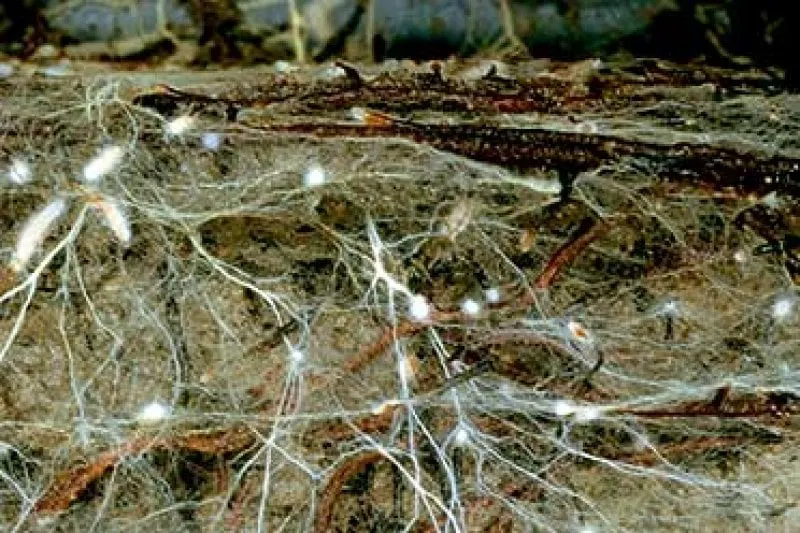GMO soil fungi: One way genetically modified barley might help reduce the need for fertilizers
GMO soil fungi: One way genetically modified barley might help reduce the need for fertilizers


A field trial of genetically modified and gene-edited barley is due to be planted this April. The research is evaluating whether improved crop interactions with naturally occurring soil fungi promote more sustainable food production.
Scientists are hopeful that the results from the trial will demonstrate ways to reduce the need for synthetic fertilisers, which could have significant benefits for improving soil health while contributing to more sustainable and equitable approaches to food production.
The trial is being conducted by researchers at the Crop Science Centre, an alliance between the University of Cambridge and the crop research organisation NIAB. It will evaluate whether improving crop interactions with naturally occurring soil fungi can help them more efficiently absorb water along with nitrogen and phosphorous from the soil. Nitrogen and phosphorous are two essential nutrients critical to crop production that are often provided through synthetic fertilisers.
Professor [Giles] Oldroyd said: “Barley has properties that make it an ideal crop for studying these interactions. The ultimate goal is to understand whether this same approach can be used to enhance the capacity of other food crops to interact with soil fungi in ways that boost productivity without the need for synthetic fertilisers.”
This is an excerpt. Read the original post here

 | Videos | More... |

Video: Nuclear energy will destroy us? Global warming is an existential threat? Chemicals are massacring bees? Donate to the Green Industrial Complex!
 | Bees & Pollinators | More... |

GLP podcast: Science journalism is a mess. Here’s how to fix it

Mosquito massacre: Can we safely tackle malaria with a CRISPR gene drive?

Are we facing an ‘Insect Apocalypse’ caused by ‘intensive, industrial’ farming and agricultural chemicals? The media say yes; Science says ‘no’
 | Infographics | More... |

Infographic: Global regulatory and health research agencies on whether glyphosate causes cancer
 | GMO FAQs | More... |

Why is there controversy over GMO foods but not GMO drugs?

How are GMOs labeled around the world?

How does genetic engineering differ from conventional breeding?
 | GLP Profiles | More... |

Alex Jones: Right-wing conspiracy theorist stokes fear of GMOs, pesticides to sell ‘health supplements’




 Viewpoint — Fact checking MAHA mythmakers: How wellness influencers and RFK, Jr. undermine American science and health
Viewpoint — Fact checking MAHA mythmakers: How wellness influencers and RFK, Jr. undermine American science and health Viewpoint: Video — Big Solar is gobbling up productive agricultural land and hurting farmers yet providing little energy or sustainabilty gains
Viewpoint: Video — Big Solar is gobbling up productive agricultural land and hurting farmers yet providing little energy or sustainabilty gains Fighting deforestation with CO2: Biotechnology breakthrough creates sustainable palm oil alternative for cosmetics
Fighting deforestation with CO2: Biotechnology breakthrough creates sustainable palm oil alternative for cosmetics Trust issues: What happens when therapists use ChatGPT?
Trust issues: What happens when therapists use ChatGPT? California, Washington, Oregon forge immunization alliance to safeguard vaccine access against federal undermining
California, Washington, Oregon forge immunization alliance to safeguard vaccine access against federal undermining 30-year-old tomato line shows genetic resistance to devastating virus
30-year-old tomato line shows genetic resistance to devastating virus The free-range chicken dilemma: Better for birds, but with substantial costs
The free-range chicken dilemma: Better for birds, but with substantial costs ‘You have to treat the brain first’: Rethinking chronic pain with Sanjay Gupta
‘You have to treat the brain first’: Rethinking chronic pain with Sanjay Gupta
